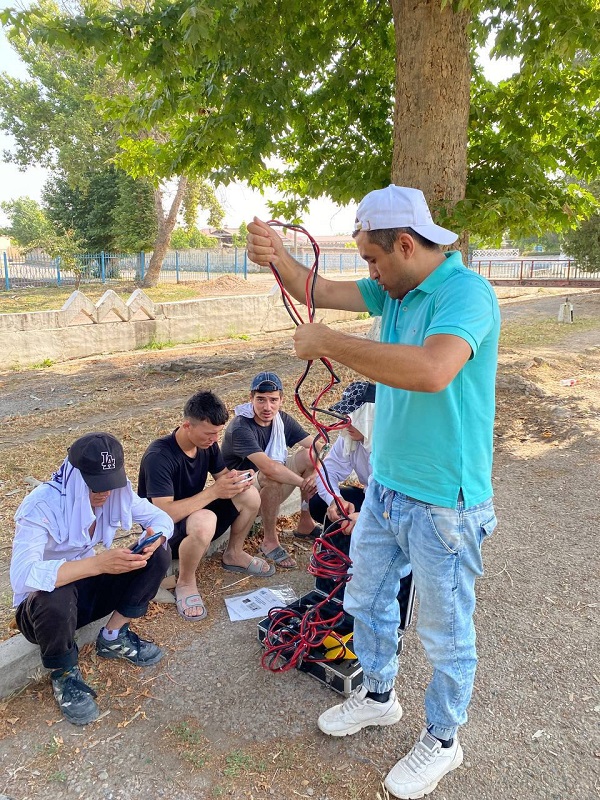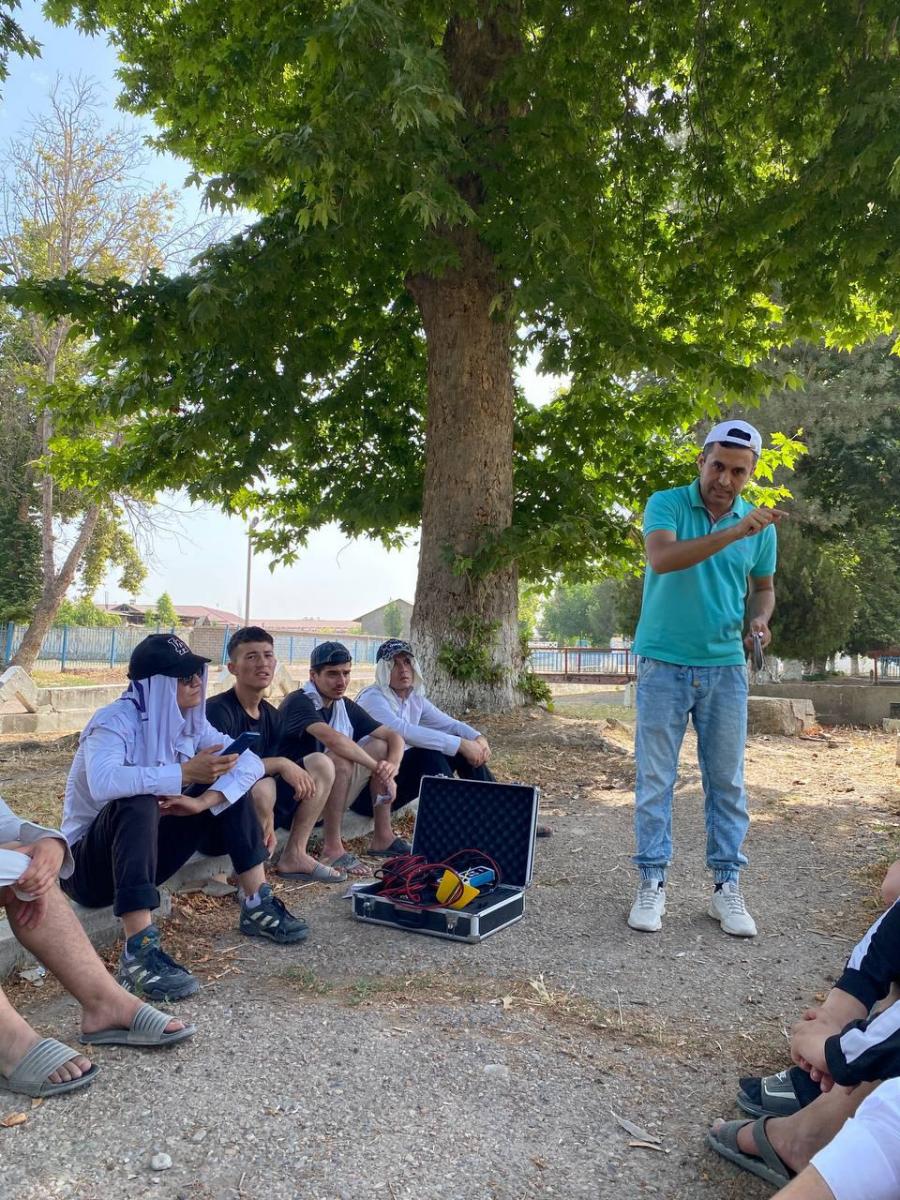Sustainable water extraction on campus
Students of the TIIAME National Research University play a vital role in advancing water purification processes at key enterprises and facilities that are instrumental in ensuring water supply and sanitation in Uzbekistan. Through hands-on internships, they gain in-depth experience with modern water treatment technologies and innovative solutions for sustainable water resource management.
The university’s practical training program is conducted at three key locations: Uchkhoz, the Karasu Canal in Yashnabad district, and "Toshkent Suv Ta'minoti".
Uchkhoz: Building a Strong Foundation in Water Technologies
Uchkhoz, an educational and experimental farm, is where TIIAME students begin their journey in water technology studies. Here, they explore the fundamentals of water supply for agricultural lands and the purification techniques used in the agricultural sector. Students engage in irrigation system purification, utilizing traditional methods as well as advanced biological and chemical technologies. This experience fosters an appreciation for efficient water resource use and equips students with essential skills for managing agricultural water supply systems.( Practice of students thirsting for knowledge | Tashkent Institute of Irrigation and Agricultural Mechanization Engineers (tiiame.uz)
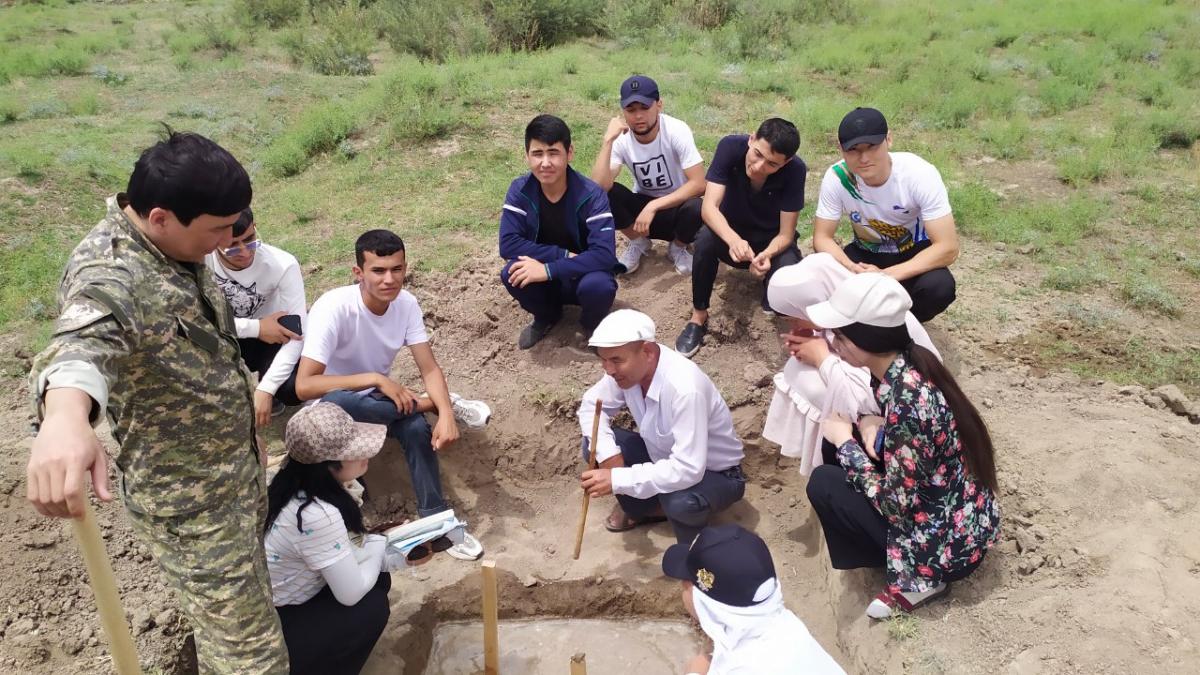
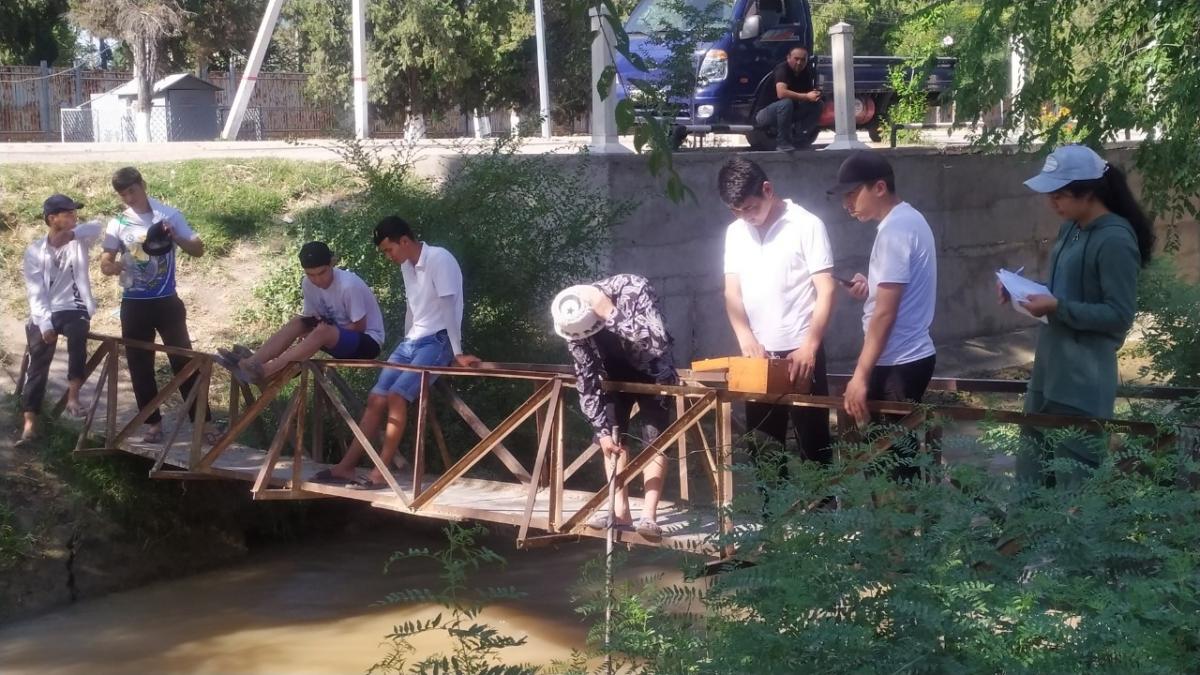
Karasu Canal: Hands-On Learning in Water Infrastructure
The Karasu Canal in Yashnabad district is a cornerstone of regional water supply infrastructure. TIIAME students contribute to its maintenance and modernization, gaining firsthand experience in water treatment and the design and upkeep of hydraulic structures. They study the ecological effects of pollutants, develop methods for their removal using biological and mechanical cleaning techniques, and assist in creating innovative water disposal systems. These activities enable students to address real-world challenges in water management and improve resource efficiency. (Opportunities for students to practice | Tashkent Institute of Irrigation and Agricultural Mechanization Engineers (tiiame.uz))
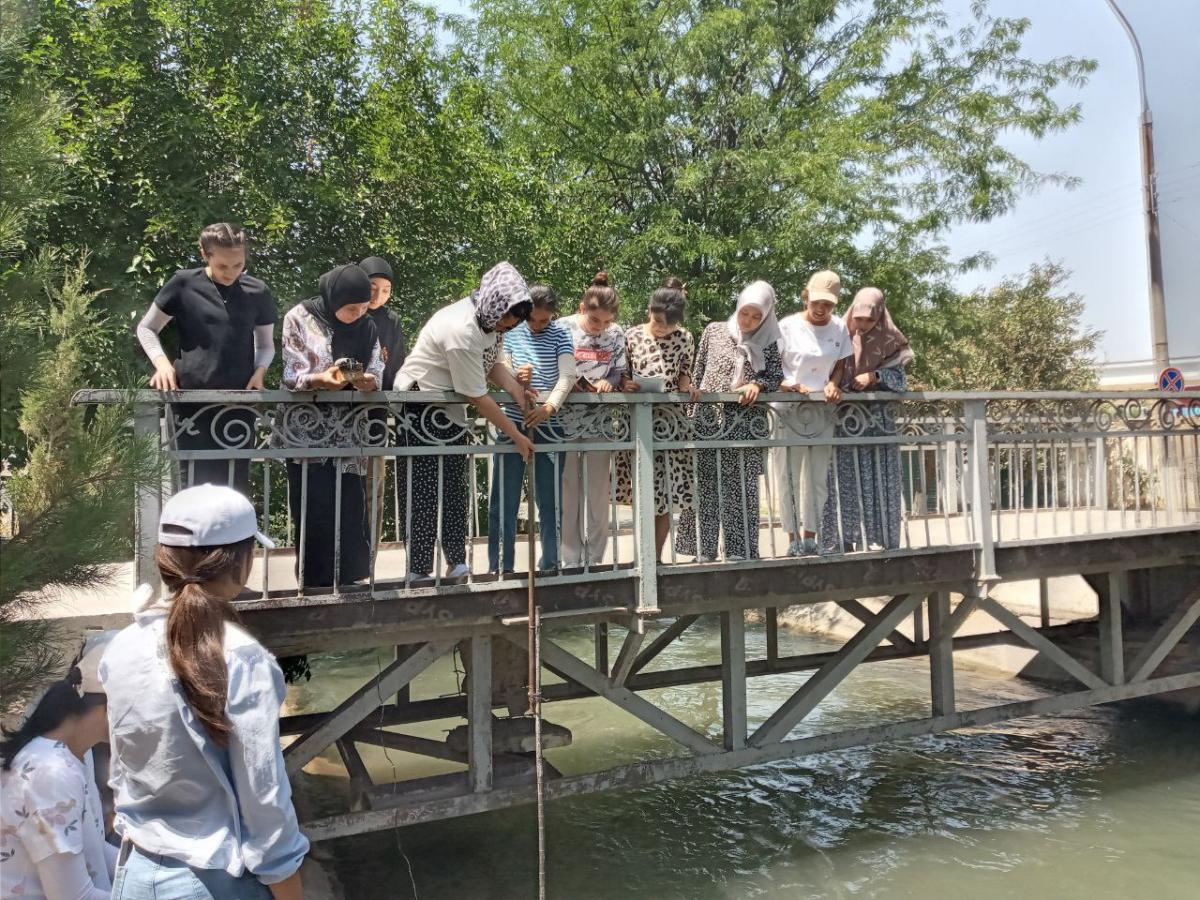
"Toshkent Suv Ta'minoti": Shaping Future Urban Water Experts
"Toshkent Suv Ta'minoti" is a leading organization in Tashkent's water supply and sanitation sector. During internships at its wastewater treatment facilities, TIIAME students delve into advanced wastewater treatment methods. They participate in key operations such as maintaining filtration systems, repairing pumping stations, and employing chemical and biological purification processes. Students also engage in water quality analysis, ensuring compliance with stringent sanitary and environmental standards, and contribute to enhancing existing systems with innovative solutions to improve efficiency.
Preparing Tomorrow’s Leaders in Water Management
Through these internships, TIIAME students not only acquire practical expertise but also actively contribute to improving Uzbekistan’s water resources. By addressing real-world challenges, they develop critical problem-solving skills and gain valuable experience in designing and managing modern water treatment systems. These experiences empower them to become leaders in the field, driving advancements in water purification and sustainable resource management to secure a better future for Uzbekistan’s water sector.
Effective wastewater management: cooperation between the University and the largest wastewater treatment plant in the region
The university, located in the central part of the city, faces an important task – responsible management of wastewater generated as a result of its activities. Limited facilities for wastewater treatment on campus have made it necessary to cooperate with a professional organization. For this purpose, the University has entered into an official agreement with the Salar Wastewater Salar Treatment Plant, a facility managed by Tashkent City Water Supply LLC.
About the Salar aeration station | The Salar plant is the largest wastewater treatment plant in Central Asia. It started operating in 1961 with a design capacity of 1,120 thousand cubic meters per day. Today, its capacity is 810 thousand cubic meters of wastewater per day. Located on an area of 113 hectares, the station performs a large-scale task of treating wastewater not only from the university campus, but also from other urban infrastructure facilities. |
Technological process and capabilities of the station
| The Salar plant uses advanced wastewater treatment methods, including mechanical, chemical and biological treatment. Aeration plants, which are a key element of its infrastructure, effectively remove organic pollutants, heavy metals and other harmful substances from the water |
Cleaning includes:
| Mechanical filtration that removes large solid particles. Biological treatment based on the use of microorganisms for the decomposition of organic substances. Chemical treatment aimed at precipitation of fine particles and neutralization of toxic compounds.
|
(https://mytashkent.uz/2020/10/06/salarskaya-stancziya-aeraczii/ )
Additional steps such as decontamination and filtration to improve water quality.
Result and use of purified water
The purified water meets the established environmental standards. Although it cannot be used for drinking purposes, it is suitable for other uses, such as:
Fishing and pond filling.
Irrigation of agricultural land.
Maintaining the hydrological balance in the region.
Treated water fromСаларthe Salar station is distributed to irrigated land around the city through canal systems including Bozsuv, Salor and the Chirchik River. This process allows for the most efficient use of resources and contributes to the conservation of aquatic ecosystems.
The agreement between the University and Salar Station underscores the university's commitment to environmentally responsible practices. All wastewater generated on the campus is treated comprehensively, which reduces the environmental impact and contributes to the sustainable development of the city.
This partnership not only solves current problems, but also serves as an example for other educational institutions and enterprises. The University demonstrates how wastewater can be effectively managed while minimizing the environmental footprint of its activities.
Thanks to this approach, the university not only contributes to the protection of the environment, but also participates in the formation of an ecological culture among its students, teachers and staff, which is important for the long-term sustainability of the region.
